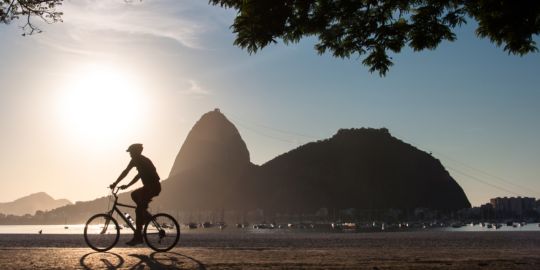Doug Casey on the South American country's investment potential
I can't bring you all of the article because it's on a subscription site. However, I think a smallish excerpt should be ok. Here Doug Casey gives his opinions about the capital city Sao Paulo.
I recently spent a week in Sao Paulo. I'd been to Brazil a half-dozen times over the years, but never to Sao Paulo, a gigantic city that could easily be mistaken for L.A., except that it lacks the charm, is said to have vastly more crime and speaks Portuguese, not Spanish. I was there to play in the Brazil Series of Poker, but also because I just wanted to see the place, since it vies with Mexico City to be the biggest agglomeration of people in the Western Hemisphere and is one of the biggest in the world. And it's only a two-hour flight from Buenos Aires.
Only business people go to Sao Paulo; tourists go to Rio, a much more appealing place. Surprisingly, Brazil only gets about 5 million tourists a year, and most of them are from neighboring Argentina. This is a very low number. France gets 80 million, the US 60 million, Thailand 20 million and Singapore 10 million. Cuba and Uruguay get about 2.5 million apiece. Even Syria reported 5 million in 2011 – a number I find hard to credit and may include numbers of tourists who are heavily armed. Further proof you have to take all government statistics with a grain of salt; all the bureaucrats know is what someone casually puts on a form.
Sao Paulo is different from Rio in every aspect. It's flat, as opposed to mountainous. It's non-centered, with numerous sub-cities, rather than being focused on the beach. It's purely about business and getting ahead, as opposed to having a good time. Both cities are famous for their high rates of violent crime, emanating from the favelas, which are the shantytowns that ring all the major cities. They originated in the ‘50s, when poor people started moving into the cities looking for opportunity. The cities were much more pleasant and more livable before the favelas arose – but they're actually good things. They're the first step to urbanization. And in the Third World, that's essential for increasing literacy, improving incomes and slowing the production of waifs and street kids.









